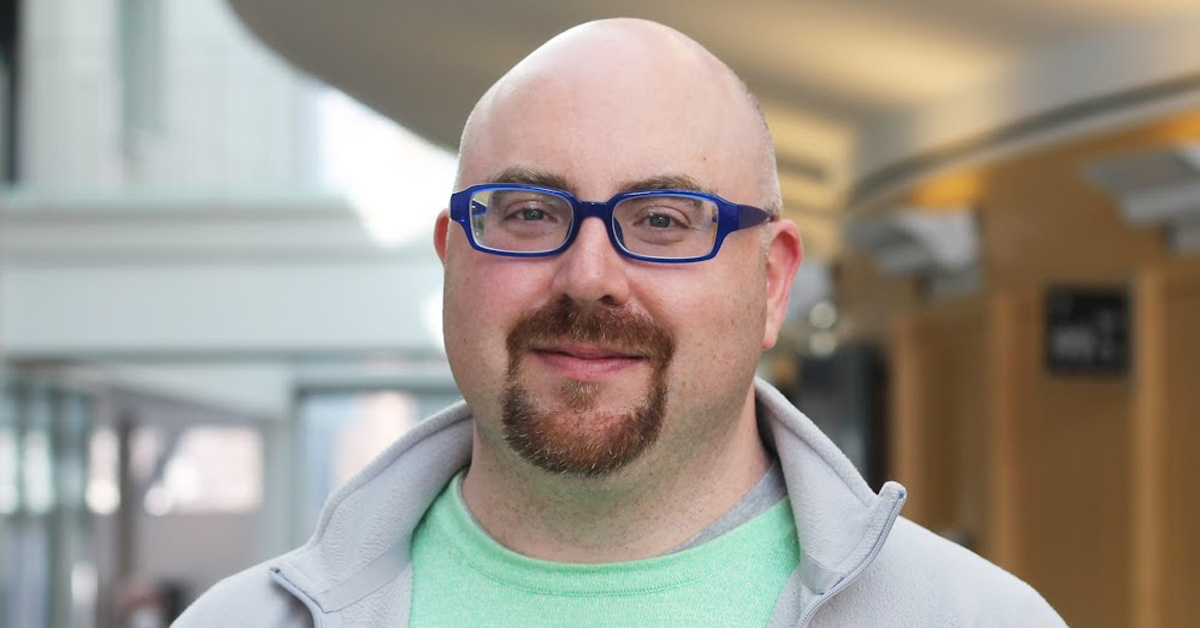Wheaton hosting conference to bring people together

Attendees will build skills and relationships in support of inclusion
Wheaton College Network for LGBTQ+ Inclusion, Support and Advocacy will host its first-ever educational conference, titled All are Welcome: Collaborative Approaches to Building Inclusive Communities, on April 20, 2024, from 10 a.m. to 3 p.m.
The event is organized by Kate Mason, associate professor of sociology and women’s and gender studies; Lyndsey Aguilar, associate director of residential life; and Mike Pratt, LGBTQ+ engagement coordinator. It will feature workshops, lunch and a keynote address by Tobias Davis, a transgender educator who has been using theater, writing and teaching to advocate for social justice for over 20 years.
Mason said she is excited for the event “because it gives us a chance to put the topics we study—gender, sexuality, inequality and more—into practice, applying those lessons in the real-life settings of organizations in our local community. Wheaton has worked hard over the past several years to become a destination for hands-on, experiential learning. I see this conference as an example of that work.”
Mason, Pratt and Aguilar will each lead a workshop. Jay Taylor ’26, Hartley Torrison ’26 and Mairi Travis ’26; staff members Henley Ballou and Val Leon Quintero; and J. Sterphone, visiting assistant professor of sociology, also will co-facilitate workshops.
Aguilar sees the conference as a way to strengthen relationships between Wheaton and local organizations, such as the Attleboro Area YMCA, Beyond Roe Coalition, New Hope and Coalition for Social Justice Education Fund. They all have been invited to attend the conference.
“This event is a great way to showcase the work that faculty, staff and students do on campus, while also creating connections with Wheaton partners,” Aguilar said. “These partners are [places] that we refer students to and fight similar pushes for change with…to have everyone working toward making their spaces more inclusive and intentional about the human experience is one way to extend the Wheaton bubble.”
Pratt echoed that sentiment. “Through the breakout sessions, participants will engage in discussions around intentional and accessible approaches to diversity, equity, inclusion and belonging, while working with a diverse range of on- and off-campus voices committed to creating equitable spaces,” he said. “I hope those who attend will learn something new about the ways in which equitable spaces are created and that off-campus folks are able to plug into existing structural approaches that have proven successful at Wheaton, especially around LGBTQ+ identity.”
The event will have two different sessions, where participants can choose to attend four different workshops, including Empowering Inclusive Collaborations and Initiatives, Auditing Existing Systems for Inclusion Gaps, Action Planning Through Everyday Scenarios, and Affirming Identity in the Workplace.
Mason says she is looking forward to leading the Auditing Existing Systems for Inclusion Gaps because “as part of a queer household, I can’t count the number of times I’ve encountered forms for medical visits or my child’s school where none of the answer options were relevant to describing my own family or relationship.”
“This workshop will invite participants to reflect on the ways their organizations might be sending messages—even unintentionally—that counteract the tone of inclusion they’re hoping to communicate when they work with new hires, clients, patients and more,” Mason said.
The conference’s keynote speaker is a playwright and social justice educator who has been featured in Newsweek magazine and the San Francisco Bay Times. Davis also is a trans man who attended Smith College, historically a women’s college, and is currently the inclusion education trainer and facilitator there.
Mason said that Davis is “intimately familiar with the institutional roadblocks that we all sometimes run into when trying to create change… and the practical steps we can take to overcome those barriers.”
Aguilar said that this is the most important aspect of the conference—participants receiving skills they can use in the real world.
—By Elsie Carson-Holt ’24
